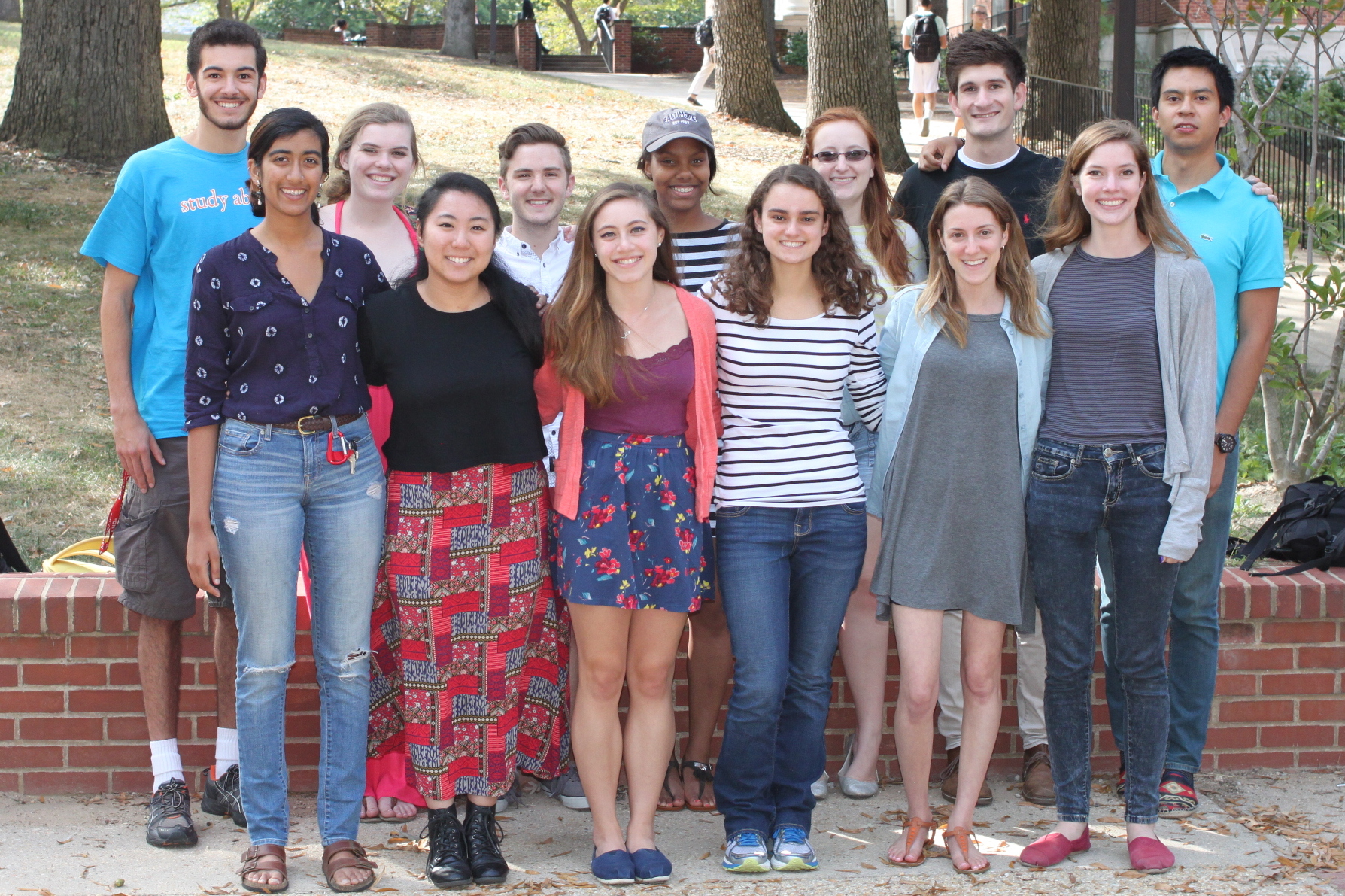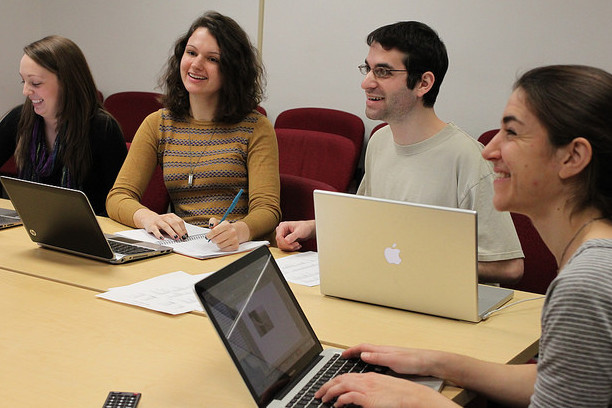Undergraduate Opportunities
A Wealth of Opportunities
The University of Maryland offers a wealth of opportunities for undergraduate students interested in language and language science, including degree programs, research opportunities, and student activities.
Degree Programs
| Students interested in the fundamental science and analysis of language can major or minor in Linguistics. An undergraduate degree in Hearing & Speech Sciences focuses on comparisons between typical and atypical speech, language, and hearing, and is the first step towards clinical qualification as a speech-language pathologist or audiologist. |  |
 |
Students often choose to pursue one of these language-focused degrees as part of a double major in another area. Common double majors include:
- Double major in Linguistics and an additional major offered by the School of Languages, Literatures, and Cultures.
- Double major in Linguistics and Psychology, for students interested in cognitive aspects of language.
- Double major in Linguistics and Computer Science, for students interested in computation and language.
- Minor in Second Language Learning/TESOL, for students interested in language teaching.
Though there are no undergraduate programs dedicated to Second Language Acquisition or Computational Linguistics, qualified students can request permission to take graduate courses within qualifying language science programs and departments.
Research Opportunities  By going beyond required courses, all undergraduate students have the opportunity to participate in cutting-edge research at the University of Maryland. Students can participate in research throughout the semester through volunteer, college credit, or paid opportunities. For especially in-depth research experiences, students can work full-time in a research group over the summer. Some undergraduate researchers go on to present their discoveries at international conferences or publish their findings in books or scientific journals.
By going beyond required courses, all undergraduate students have the opportunity to participate in cutting-edge research at the University of Maryland. Students can participate in research throughout the semester through volunteer, college credit, or paid opportunities. For especially in-depth research experiences, students can work full-time in a research group over the summer. Some undergraduate researchers go on to present their discoveries at international conferences or publish their findings in books or scientific journals.





